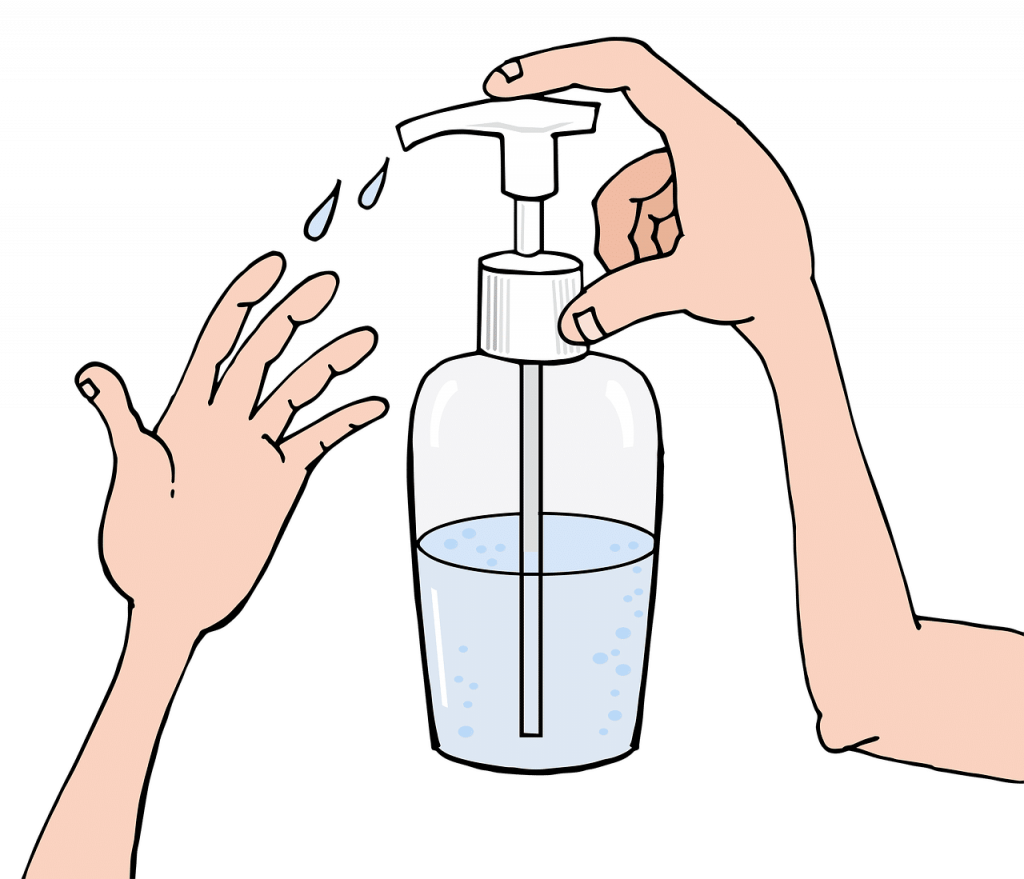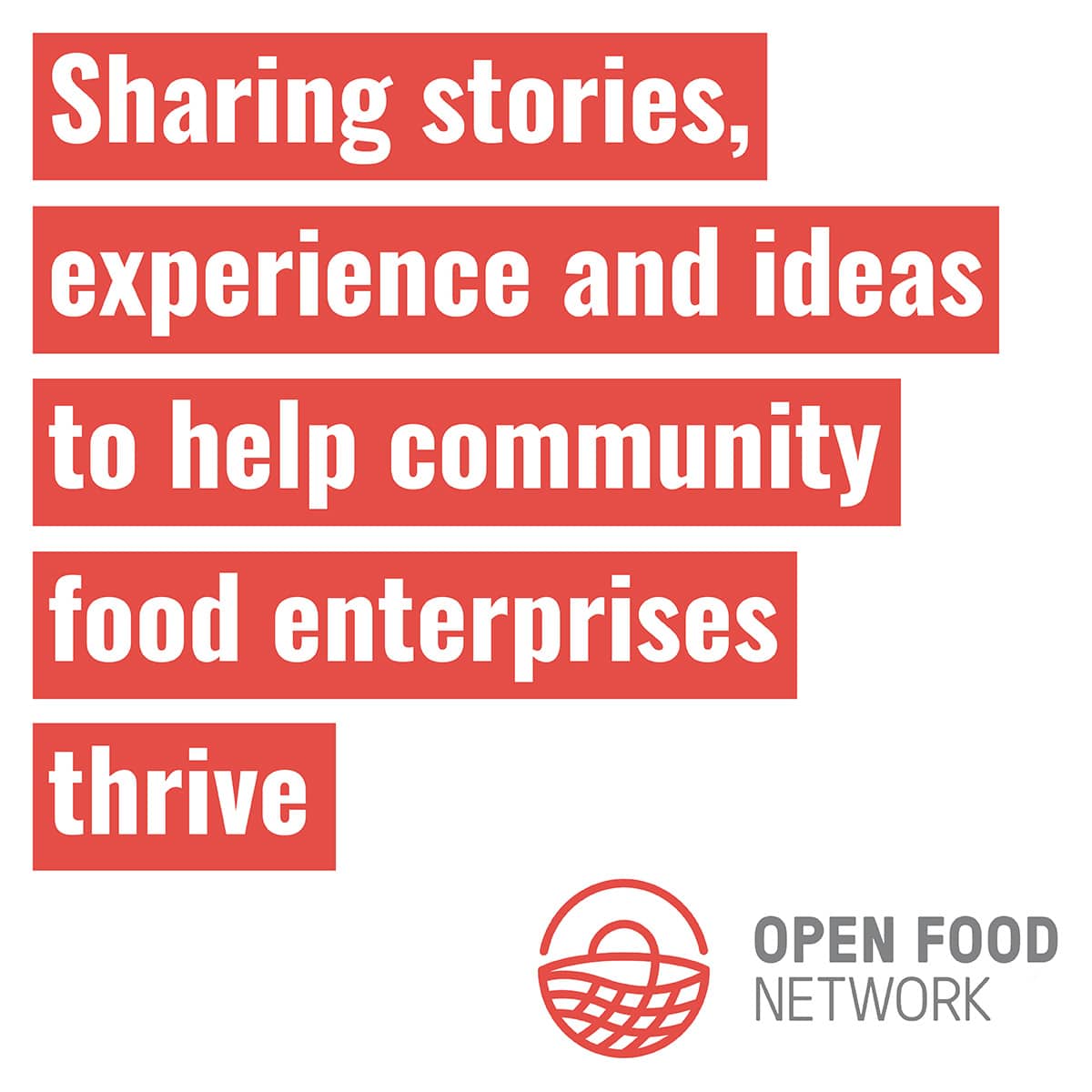The UK is now in a second full national lockdown to prevent the spread of the Coronavirus. The PM said lockdown will expire on the 2nd December, however, there is the potential it could be extended if the infection rate doesn’t decrease enough by this date.
Sadly, since the number of people diagnosed with Covid seems to be going up, let’s be prepared for a longer lockdown. Luckily we have had the chance to learn from each other and this blog shares our knowledge and experience gained so far. Read on for ways to make lockdown more manageable for your food enterprise.
Consider what’s going on for your customers
Earlier this year, the empty supermarket shelves and fully booked supermarket delivery slots were a big shock to the people who normally shop this way without questioning it. To put it another way, this was the first time for many of us in the UK to be afraid of not getting enough food. The pandemic has shown many people for the first time just how vulnerable our food systems are in times of crisis.

So, we may not be seeing the same headlines about empty shelves this time around, yet many are still anxious about their access to food. With this in mind, consider and empathise with what is going on for your customers. For example, due to the uncertainty of the times they may have a stronger emotional response to missing out on your order cycles than usual. Put yourself in your customers’ shoes – what do they need? What do they want?
In times of anxiety, it is extra important to be clear in your communication. Equally important, make sure to set realistic customer expectations which you can deliver. For one thing, if your order levels become unmanageable you may need to disappoint some current or potential customers who are not able to order from you.
Keep your customers informed of what’s going on and what they can expect with order cycles and if there are any stock risks, etc. Also, reassurance goes a long way, so make sure to reassure any disappointed customers you are working hard to get food to as many people as possible. For example:
Email from anxious customer:
“Why has my order been cancelled? I have not cancelled it and I am over 70 and very much rely on it. I look forward to hearing from you.”
Email after reassurance:
“Phew, thank you!”
Top tips
If you sell out fast every week and your ‘order cycle closed’ page is up all the time, some customers may think you are closed all the time and not come back. If they are vulnerable or self-isolating, this may be a really disappointing and stressful experience for them.
An email or note on your closed order cycle page is an opportunity to keep these customers looped into what’s going on. Also, you can use this opportunity to reassure your vulnerable customers and to point them in the direction of your priority list. To help you set up priority shopper lists and collection time-slot emails for your own enterprise, please contact a member of the OFN team by emailing support@openfoodnetwork.org.uk.
Added bonus
Here is a video webinar with Louise and Kay from the OFN UK admin team which is filled with tips, ideas and resources to help you and your food enterprise survive and thrive through this lockdown and beyond:
Offer extra support to vulnerable and self-isolating people
For vulnerable and self-isolating people, it is really important for them to know they have food coming every week. What are all the ways you can ensure your most vulnerable customers have access to food? By supporting vulnerable and self-isolating people’s access to food, community food enterprises are in a great position to generate more loyal and long-term relationships. Consider this as an opportunity to find more ways to develop a personal connection with your customers – which is missing from their relationship with the supermarkets.
Top tips
- You could set up early shopping ‘hours’ for elderly & vulnerable customers. Read how to here.
- Can you offer (free or reduced rate) delivery for those who are self isolating? Read how to here.
- For those who struggle to use the internet, can you set up a weekly rota to take orders over the phone? A phone call could really make the difference to someone’s day if they are feeling lonely. Watch how to here.
- Are there any customers who order the same products each week/month? Can you offer them a subscription instead? Read how to here.
- Priority shopper lists: contact the OFN team if you would like us to compile a list of your most frequent customers.
IMPORTANT: if you are delivering to vulnerable customers, make sure drivers and couriers adhere strictly to Covid guidance – see government guidance and these tips from OFN users.
Generate customer confidence in your enterprise
Customer confidence is a measure for the degree of optimism that consumers feel about the economy and their personal financial situation. So, when this is high people spend more and when it is low, they spend less.
With the uncertainty of the moment, customer confidence is at an all time low. Many people have been affected financially by the pandemic and have financial security concerns. With this in mind, if you know your customers’ financial security has been impacted you could revisit your messaging to focus more on value for money. Make sure to communicate clearly the benefits of your offering. Or, you could revisit your range to include basic essential items – or perhaps an essentials box.
Consider linking up with local enterprises that are tackling food poverty and see if they want to list any products on your shopfront to be distributed to tagged customers. This 9-minute video covers an example of a food poverty project in Gloucestershire which is planning to roll out nationally.
On the 2nd December we will be hosting a webinar with guest hubs on how to reach low income and disadvantaged communities with your food enterprise. Join our new weekly bulletin email for more info and the link to join.
Concerns around cleanliness

Supermarkets feel like unsafe territory for many and this is a great opportunity to help your customers to feel safe and secure shopping with you. What’s your Covid policy? Communicate how you keep your customers safe and help them have confidence in your processes. Here is an example from Stroudco Food Hub.
For one thing, could you work with scheduled and staggered collection times? Or can your customers expect no queues when they collect and can your customers expect space to shop in safety? Make sure you share this information! Help your customers to have the confidence to shop with you.
Concerns about access to food

Take this opportunity to shout about why we need a resilient local food system. Why we should have resilient supply chains and actual relationships with suppliers and producers.
Help your customers feel they are part of something bigger (e.g. the alternative food movement – be positive! E.g., what we are doing is great and here is why, instead of what others are doing is rubbish). Show your customers you share the same values and care about the same issues they do. The reward for this is highly engaged advocates for your business who naturally will want to shop with you. In the long run, sharing your values with your customers leads to a deeper emotional attachment which generates more customer loyalty.
This also goes back to the previous point about communication being key. For example, you may have had to cap orders due to packing capacity and some customers may have missed out. So, when your order cycle closes, you could send an email to your mailing list explaining why some of your customers couldn’t order from you.
Top Tips
- What is the maximum number of orders you can fulfil? Don’t be afraid to close an order cycle early if you reach this limit! Read how to soft close an order cycle here.
- Set absolute levels for your stock rather than ‘infinite’ as it is better to sell out than disappoint customers! Contact the OFN support team if you would like us to set up a notification when this limit is reached.
- Check in regularly with your suppliers to make sure they are able to fulfill orders.
- Plan for the scenario of a supplier needing to self isolate.
- Implement waiting lists if you can’t cope with demand.
- Communicate the steps you are taking to ensure your customer’s access to food.
Help to cope

Compared to the supermarkets long complex supply chains and vulnerability in the face of crisis, community food enterprises have demonstrated amazing resilience and the ability to adapt rapidly. But how do you cope when new customer numbers go up, order numbers go up, order values go up?!
The most important thing is to avoid burnout by scheduling days off for everyone where you can. It also helps to make sure your staff and volunteers know how valuable they are with a ‘thank you’ – especially in times of great pressure! You can learn how to set up a staff discount here.
Top Tips
- Can you organise extra collection points and days?
- Are deliveries possible? If this is not a sustainable option for your enterprise in the long run, perhaps this could be prioritised just for the vulnerable for now.
- Do you need to rethink your team’s shift patterns? Have you built safety into your shift patterns with no overlap teams in case people get sick?
- Can you redeploy any vulnerable members of staff to different parts of the business where they will not be in contact with customers to keep them safe?
- Do you need to create more space for packing or perhaps a cap on orders and new sign ups?
- Check in now with those who volunteered to help you in the spring – can you create a ‘pool’ of drivers who can be called upon? Are there other local delivery services you can partner with?
- Marketing tip: perhaps you could schedule your social media in advance (especially order cycle open reminders) just in case you run out of time.
Community is key
Learn from each other
Here is an interactive session with Dorothea Warlich from Locavore Glasgow, Ruth Redgate from Mercia Food Hub, Alastair Cameron from Helston Local Food Hub and James Millar from Stroudco – who discuss and share their lessons and experiences from the pandemic so far:
Create partnerships
It’s helpful to foster meaningful connections and build authentic and lasting relationships with other relevant businesses, organisations, venues and community groups. Consider where you already have relationships – can you build on this?
You could start by approaching your suppliers and think of new ways you can help and support each other. Don’t be afraid to ask your suppliers to spread the word about your food enterprise through their networks. DO you have any suppliers who could deliver to customers on the way home from dropping off their goods to you?

In addition, consider potential new collection points if you have any suppliers with a shopfront like a butcher, bakery or cheesemonger. In the group webinar video shared above, Ruth from Mercia Food Hub mentions their collection point with a local butcher who is also their supplier.
Think of other local businesses who could help and team up with those of a similar outlook. For example, in the same video James from Stroudco Food Hub mentions a crossover with a local pharmacy who delivers medicine to vulnerable customers. You could also look to your local council for grants and support.
With all things considered, we are lucky to have the chance to learn from each other. With everything we have learned so far, this lockdown may be more manageable – especially if we collaborate by sharing our experiences and working together.
Want more?

Do you want more resources and support for your food enterprise? If so, here’s what you do next:
- Join our Thriving Food Hubs Facebook group here
- Join our ‘offerings of the week’ weekly bulletin here for all our best & most valuable offerings of the week – including exclusive webinar invites, the latest OFN Release info and exciting updates, useful and practical content, specialist Q&As session invites and all our latest and best support offerings.
Kay Naomi
